Counting back to Kona: 2017 – the game changer and runner-up finish for Sanders
Canada's Lionel Sanders came oh-so-close to taking the Ironman World Championship title
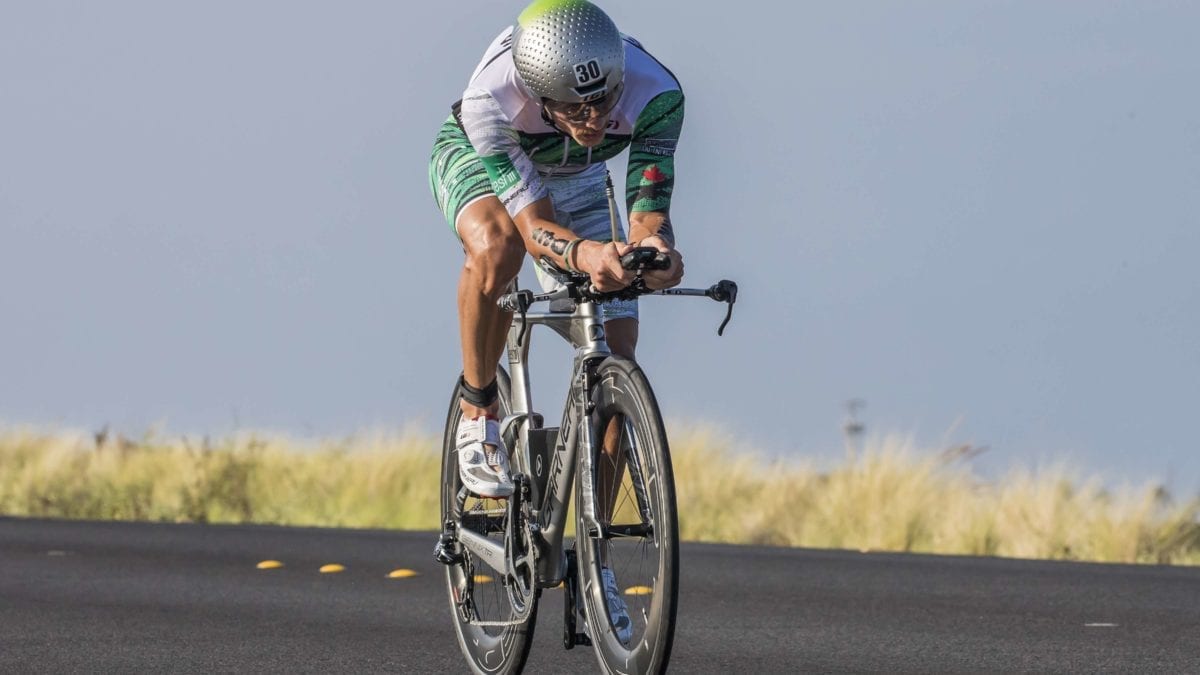 Photo by:
Paul Phillips/ Competitive Image
Photo by:
Paul Phillips/ Competitive Image
Until you’ve spent some time in Germany, or at the Ironman World Championship in Kailua-Kona , Hawaii, it’s hard to really gauge just how big a deal the race is to the Germans. After winning his first two world championship events in 2015 (he won the 70.3 worlds in addition to the Kona crown), Jan Frodeno was named Germany’s athlete of the year. That’s a feat so outrageous in the soccer-mad country that it was described to me as the equivalent of a triathlete topping Sydney Crosby for a similar Canadian award in a year in which Crosby led the points standings and took a Stanley Cup.
After watching their athletes sweep the men’s podium in 2016, the German media came to Kona this year determined to cover the event in style. Live television hits started during the parade of nations on the Tuesday before the race and it was shown live on German television, too. Then Canada’s own Lionel Sanders almost wrecked the celebration.
German triathletes struggle over their sentiments about the man from Windsor, Ont. While they don’t want him to beat their beloved list of stars including 2015 and 2016 world champ and 2008 Olympic gold medalist Jan Frodeno, 2014 Kona winner Sebastian Kienle and last year’s third place finisher Patrick Lange, (who set a new run course record to move himself from 23rd to third in 2016), they are enthralled by Sanders’s unique training methods and the fact that he was such a weak swimmer a few years ago.
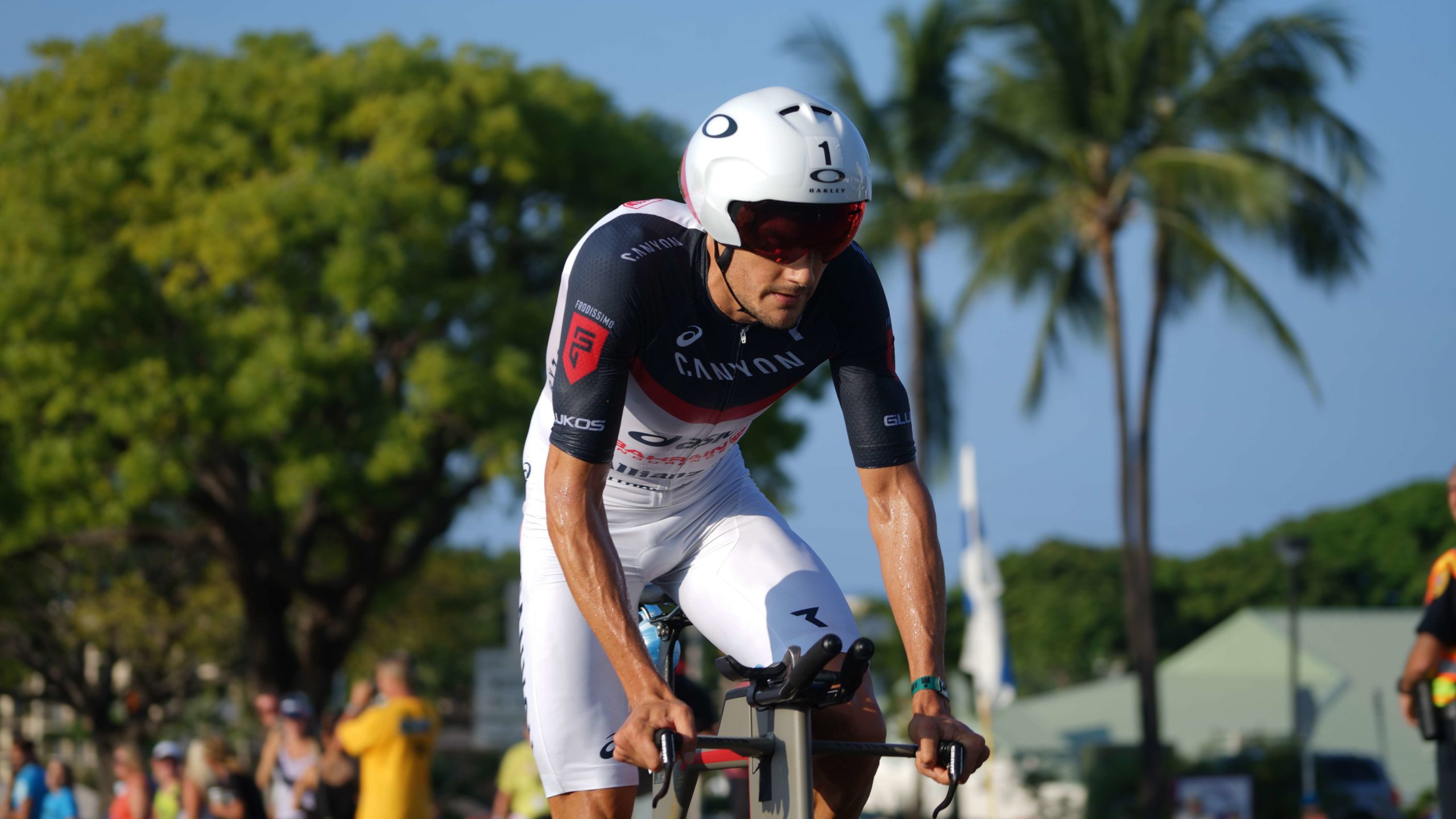
With all the coverage and attention on the German elites, the day looked to be going awry for the Europeans almost right from the gun. Frodeno had made no bones about his race plan heading into the race: break away with a small group of athletes (or even just one if need be – Australian super-swimmer Josh Amberger) and try to open up as much of a gap as possible on the strong cyclists and runners in the field. Frodeno ended up on the opposite side of the start from Amberger, though, and never got onto the feet of the Aussie, which relegated him to lead the first chase pack.
Lionel Sanders Raises the Bar
Meanwhile, Sanders found himself at the front of the second chase group, a shocking spot for the man who had regularly been the last pro out of the water a few years ago. The fact that Sanders was even in the race was a tribute to how much his swimming has improved over the last year. In October, 2016, Sanders was quite vehement that he would not be back on the Kona start line until his swimming improved enough to warrant it. His impressive gains early in the season got him thinking that he might actually be in the right ball park when it comes to the first leg of the race to compete this year.
During race week Kienle had been asked whether or not he wanted to ride with Sanders in the hunt of the lead pack. “I’m not going to wait for him,” Kienle kept saying, assuming he’d be ahead of Sanders out of the water.
There was no waiting, though. Sanders was just ahead coming out of the water, but both were roughly six minutes behind Amberger and just under five minutes behind Frodeno and the huge group around him.
Frodeno continued to find the odds stacked against him out on the bike as Kienle and Sanders got some company in former pro cyclist Cameron Wurf. The three powered through the initial stages of the ride and were at the front before half way. They didn’t stop there, though, continuing to fly through the challenging bike course. Wurf set a new bike course record (4:12:54), breaking Normann Stadler’s long-standing 4:18. The Australian was ahead of Sanders by almost a minute and another 40 seconds ahead of Kienle. Frodeno found himself 2:15 behind the fast-riding Aussie, while Lange was over 10 minutes back in 11th position.
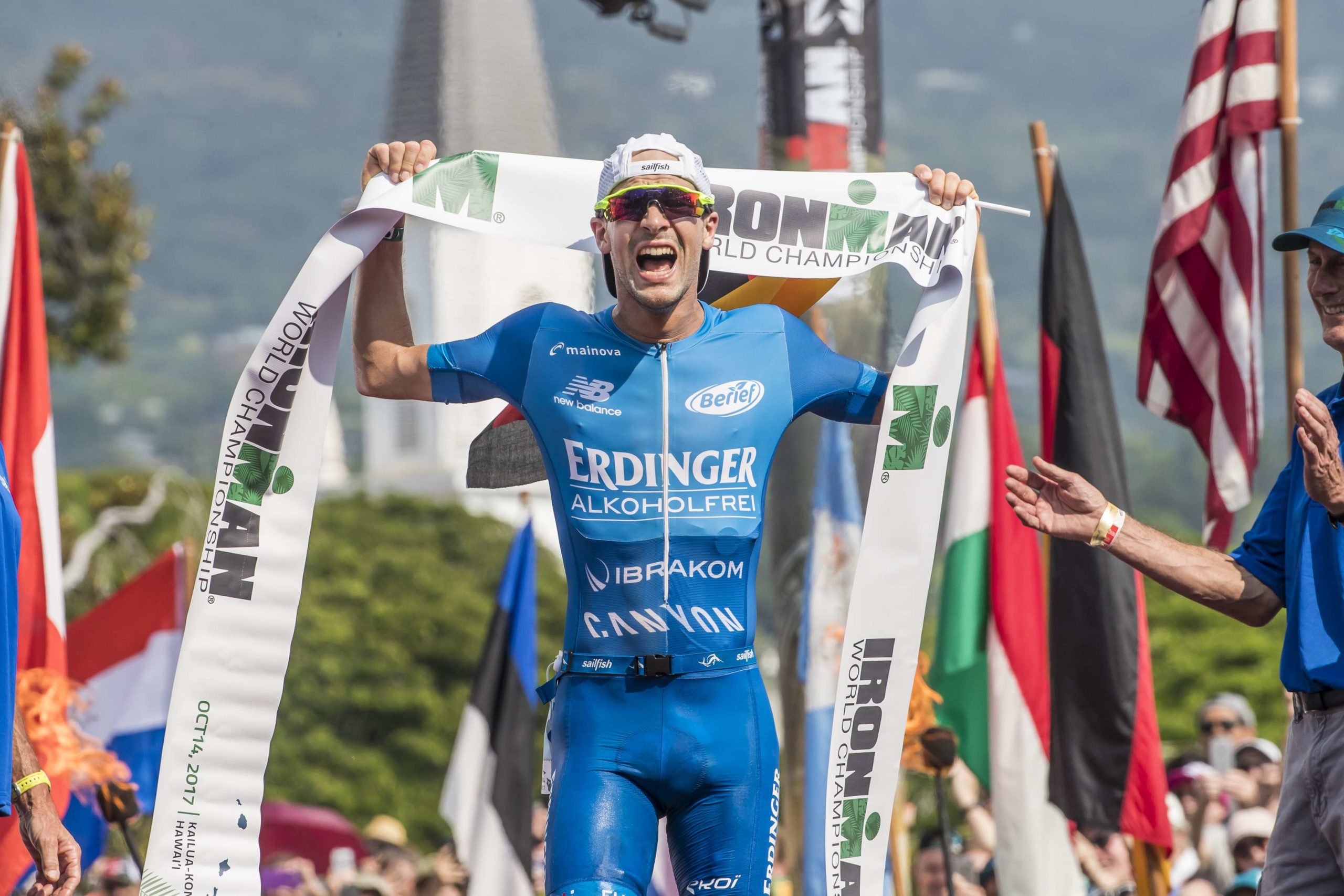
The surprises kept coming as Frodeno started walking early in the run due to back issues. (He would eventually finish the race, walking and jogging to the line.)
Sanders was quick to move to the front, but would face some pressure as Lange pushed hard from behind. As he did a year ago, Lange was simply flying through the field. The pass came at 37 km and it was simply frightening to behold. Lange went by a man considered to be one of the best in the world like he was standing still.
Lange kept the German TV crew happy with his record-setting day. He was just seconds short of his run course record, but broke the overall course record (8:03 previously held by Craig Alexander) with his 8:01:40 finishing time.
Sanders would hang on for second, while another fast runner, David McNamee (U.K.) would get past Kienle in the closing miles of the race to round out the podium.
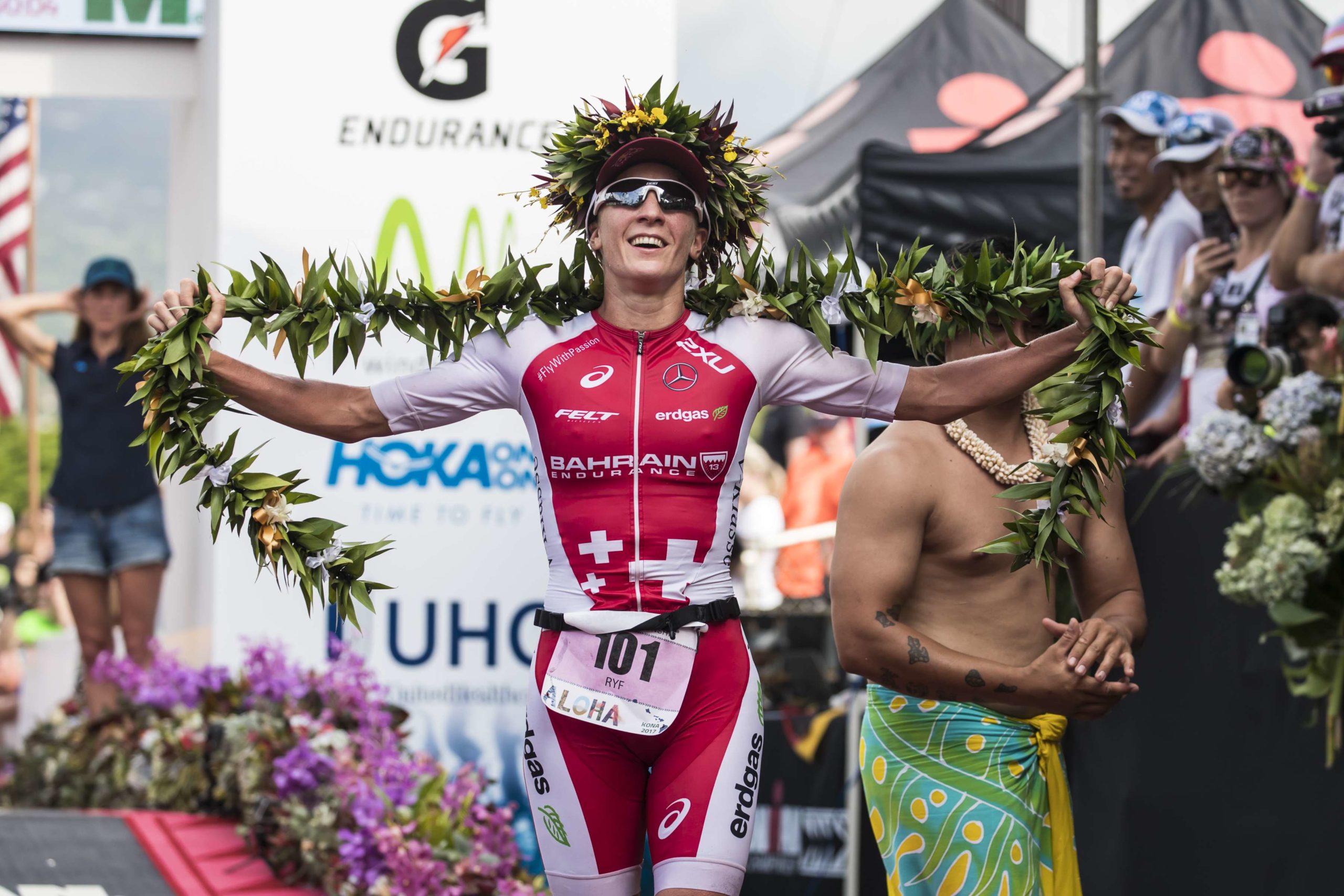
Ryf Rises to the Occasion
After setting a new course record and leading the rest of the women from the get go in 2016, this year Daniela Ryf was pushed to her limit to take her third consecutive world title. Lucy Charles, a former elite open water swimmer from the U.K., managed to get out of the water just a few seconds ahead of fellow super-swimmer Lauren Brandon, finishing almost four minutes ahead of Ryf.
On the bike, Charles continued to push hard, opening up more time on Ryf. Six minutes down with 40 km to go and with two strong cyclists and runners in tow (the Australian connection of Annabel Luxford and Sarah Crowley), Ryf decided it was time to close the gap. In the last 20 km of the ride Ryf managed to make up a four-minute deficit on Charles and would lead into T2, happy to be able to get her shoes on first.
Despite having tired legs from the surge to the front, once out on the run there was no stopping the defending champ as she posted the day’s fastest run (a few seconds over three hours). Charles had her fastest marathon time ever, despite the steamy conditions, to finish second, while Penticton long-distance world’s champ Crowley rounded out the podium after a hard-fought battle with Heather Jackson, who had to settle with fourth after finishing third here in 2016.
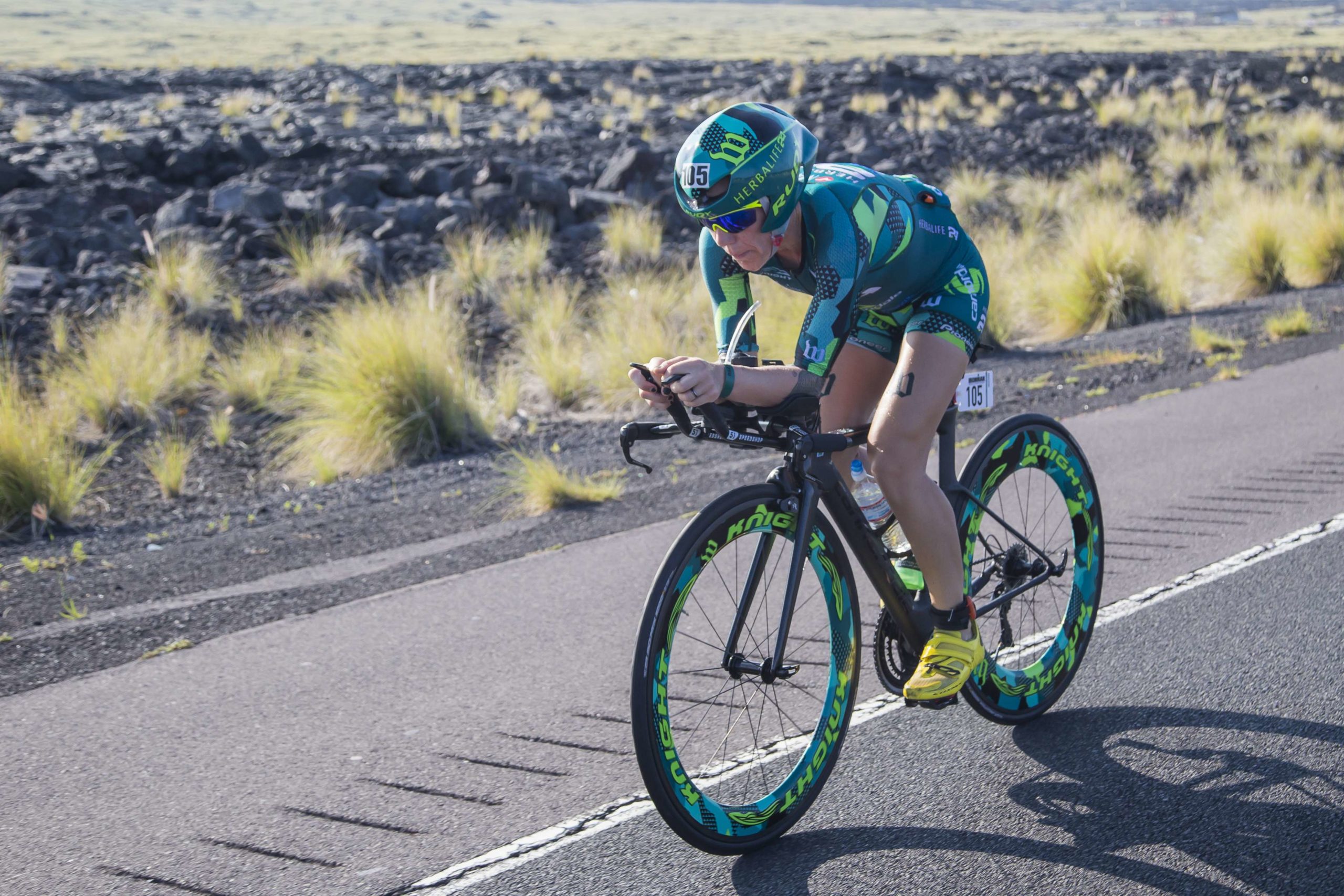
They Said It. Post-Race Insights
The Men
Patrick Lange: Champion
“It is my absolute dream come true,” the German said. “I am absolutely overwhelmed.
“I started the run feeling a bit weak, but I found a good rhythm. I had David [McNamee] behind me – he was pushing me really hard. I was happy to have him because it forced me to stay focused. I was happy to pass Sebastian [Kienle] to move into second – that gave me some motivation. Then there was just Lionel. He’s one of the toughest guys in the sport. He’s a mental beast.
“I looked at the clock at the last aid station and it said 7:40, so I knew I had a chance at the course record. I expected a fast time, but it’s just a dream come true.”
Lionel Sanders: Second Place
“I love the battle, I love the fight,” said the Windsor native. “This race provided one of the best fights I’ve been involved in. It hurts to get passed at 23 miles, though. This guy [Patrick Lange] is an animal. I tried to go with him, but it was a very humbling experience. It [staying with Lange] lasted about one second.
“I have an odd feeling about the swim. I led literally the second half and really don’t think that should be me. I need to get to the front pack, though.
“I burned some matches [on the bike],” he said of his strong ride. “I don’t descend very well and at one point I got dropped by the guys in front. I rode 350 watts for 15 minutes to bridge back to them.”
David McNamee: Third Place
“I remember looking at last year’s photos and seeing Patrick’s face as he crossed the line,” said the Scottish speedster. “He looked like he was thinking ‘what just happened?’ It might take five or six weeks before it sinks in for me. A podium in Kona has always been a dream.”
Sebastian Kienle: Fourth Place
“It really hurts to talk about fourth place,” the 2014 world champion from Germany said. “I struggled over the last 22 km of the marathon. It was all will. The bike turned into a matter of who would be the last man standing.
“It changes the dynamics when someone like Cam Wurf [a former pro cyclist] was in the race. He wanted to go after the bike course record. I wanted to leave everything out there, which I did.
“[A race like this] gives you a lot of motivation for the years to come. I feel fortunate to be an athlete in this time when we have so many great athletes involved in the sport who can take the title. I think it is very good. I love it and I think it will be good for the sport.
“I had to take some chances out there. I was very aware that I was probably going to have to pay [for the hard bike]. You need to try something that you’re not capable of. I was not sure I was going to finish the run today. Sometimes you have to try something that will either end in a glorious victory or end in a disaster.”
James Cunnama: Fifth Place
“I feel good about my fifth-place [finish],” the South African said. “I came in here with not very high expectations. I re-joined by coach Brett Sutton five months ago. The plan was to come in with no expectations. To do that and come fifth, I’m ecstatic.”
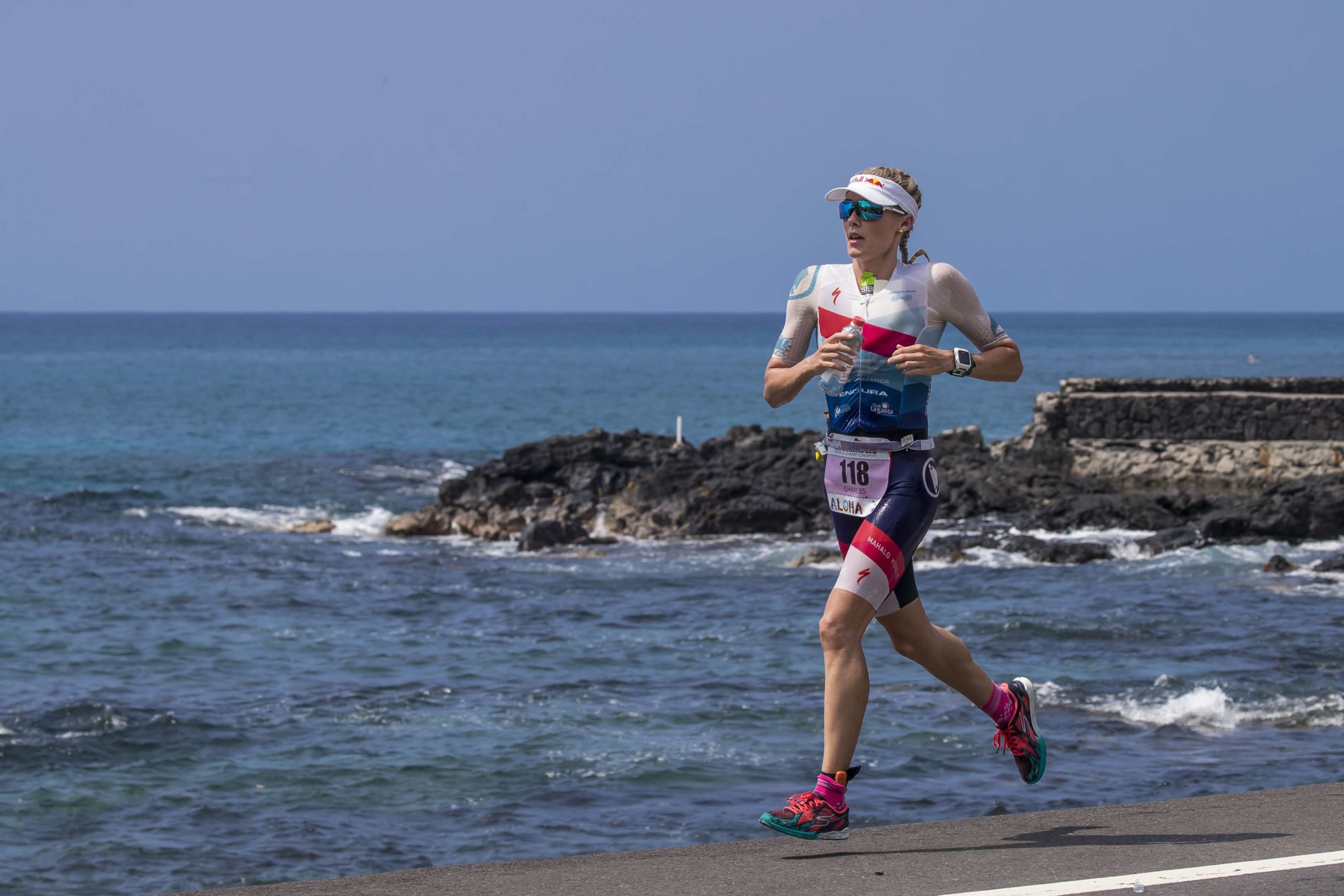
The Women
Daniela Ryf: Champion
“It was a tough day,” said the three-time champion from Switzerland. “Congratulations go to Lucy [Charles] – she had a great swim and bike and challenged me all day long.
“At 160 km I had a big decision to make,” Ryf said of her four minute deficit to Charles. “I went ‘all in.’ I caught her, but it was really hard. I went through a roller coaster of emotions on the bike. I was really happy that I could turn it around. It was not the perfect day. It was the most I’ve ever had to fight for a win. The finish and the win made it more emotional and special.
“It was the hottest I’ve ever felt,” Ryf said of the stifling conditions. “I was wondering when I started the run if I had a fever.”
Lucy Charles: Second Place
“At the start of the year I never thought I would be on the start line at this race,” the former U.K. national team swimmer said. “I was planning on racing a bit more and getting my name out there. If anyone had told me that I would finish second here this morning I would have laughed.
“[Lauren Brandon] and I wanted to open up as much of a gap in the swim as we could,” Charles continued. “But then I went way too hard on the bike.”
Sarah Crowley: Third Place
“I’d had good bike rides all year,” the Australian winner of the ITU Long Course World Championship in Penticton said. “I’d hoped that I could do quite well on the bike. I came off [crashed] just before Kawaihae. I was wondering if I would keep going. Then Anabel (Luxford) rode by and said – ‘Sarah, get up.’ I learned a little about the island – you need to respect it a bit. I was holding my bars with one hand and taking a drink and got blown off my bike.”
Heather Jackson: Fourth Place
“Today I improved my times in all three disciplines,” the American said when asked if she was disappointed to move down one spot in the standings from 2016. “I am totally happy with that. I thought it would be a battle with the girls up here [on the podium]. It was a good experience – I learned a lot of lessons today.”
Kaisa Sali: Fifth Place
“I feel like when I am racing on this island I am like a child in a roller coaster – I can’t control myself,” said the woman from Finland who was fifth in 2016, too.
Canadians on the Podium
Winning an Umeke bowl, the traditional prize given to those who finish in the top-five at the Ironman World Championship is one of the most prestigious prizes in our sport. While Canada was kept off the top step of the podium this year, there were a number of Canadians who will have to declare their beautiful wooden bowl as they head through customs on their return from the Big Island.
Lionel Saunders: Second, pro men: 8:04:07
Pierre Heynemand Jr: Second, M50–54: 9:34:29
Milos Kostic: Fourth, M75–79: 16:18:26
Sarah Casaubon: Second, W30–34: 10:16:02
Kimberly Fabian: Fifth, W45–49: 10:39:52
Jane Macleod: Fourth, W60–64: 12:35:34
Cullen Goodyear: Fifth, W65–69: 15:33:52
Valerie Ganzales: Fourth, W70–79: 15:38:44
This story originally appeared in the November/December 2017 issue of Triathlon Magazine
